Disclosure: Disney provided me an all expense paid trip to help promote Muppets Most Wanted and other Disney projects. All experiences and opinions are my own. Yours may differ.
The Beverly Hilton was the perfect location for this group of interviews. It was beautiful and since the hotel itself has been in many films, it was fitting to be interviewing actors, directors and producers in this magnificent place!
The group of bloggers had seen Muppets Most Wanted the night before on the Disney lot, so we were all very excited to sit down and speak to the men behind the movie. James Bobin, a British Director and producer, was the first of the Muppet crew to speak with us. He had lots of fun gems of information to share. He was anxious to get down to it!
Q: So who is the most difficult Muppet to work with?
I’ll let you guess who the most difficult Muppet is who I work with. None of them, they’re all a total joy to work with. I’m a huge fan, I grew up watching the Muppets as a kid, so working with them for me is like working with my, my heroes… every day I go to work and I’m so pleased just to be there. So it’s very hard for me to get cross with them ’cause they’re so loved, they’re, you know, it’s like working with Luke Skywalker, it’s crazy. Like little Kermit is like–– like my hero growing up so meeting him and getting to work with him and even write lines for him is just amazing so, you know.
Q: So while directing do you lose yourself in your only talking to the Muppets or talking to the…?
Not really, no ’cause, remember when I’m directing the stages are raised up like four-foot up in the air, and usually it’s they cut a hole in the ground in front of me and which stands say 20 or 30 puppeteers and all the characters are held up. Uh, and in-between takes they had to come down, because the puppets often are very heavy, like Kermit is a sock so he’s easy to steer. But Piggy is like a, you know, she’s a pretty heavy puppet, so Eric’s arm just kind wears out through time. So he can’t hold her up the entire time. So in-between takes they come down, and at that point I’d come in and say my stuff. But sometimes, for example, like Statler and Waldorf, they’re often in the box, and I can’t see Dave and Steve underneath so I have to then at some point go, “Uh, okay, uh, can you just do that again!” Like that and to Statler and Waldorf as well, so it’s like really it’s them. So generally to puppeteers occasionally to the puppets themselves. But I–– I do think that what’s funny about that is in my mind I know Steve Whitmire who plays Kermit, but I also know Kermit. He’s a different person, and that is how good Steve is at doing Kermit, like he really, you know, when I’m in my off moments I just think on what Kermit’s doing, like I just know him very well, like he’s someone I know. I mean, like he’s on my phone somewhere, he really feels that real to me.
Q: So what is the difference between shooting the first movie and then the second movie?
Oh, for me obviously it was the slightly, uh, the first movie I’d never worked puppets before, so it was a very big experiential learning curve of how to frame shots, how to make this world feel realistic, that these puppets were alive, breathing people who are interacting with humans and the world’s just, the world we live in, the recognizable world we live in happened to have puppets in it. That idea I love, and that’s a very important part of it. And, obviously, you never want to put the words “puppet” and “action sequences” in the same sentence as a director, ’cause that is very hard. But I like the idea of trying difficult stuff. It’s ambition about the movie I really like about it, it feels like a very different film to me. And the way I love both movies equally, but this film–– film I feel like has slightly more ambition which I love about it and I think that’s when you’re doing a sequel there’s all sorts of things you have to deal with. One of them is you want to try and make a different movie. You don’t want to make the same movie twice, and that’s very important.
Q: When writing The Muppets did you take any inspiration from your funny show “Flight Of The Conchords“? And then do you think that adult humor and children’s humor are closer than we think?
Good questions. Uh, adult humor and, I’ll do them in the reverse order. Adult humor and child humor, yeah they are kind of different but they can be the same. I mean, we’re all big kids, really, I am, I know for sure. And so often I find things like, things falling over, I will find that funny forever. Like Tom and Jerry makes me laugh as much as my kids might laugh. And that’s always gonna be the way. But sometimes it’s useful to have a thing that works on two levels, that they like it for some, a reason, and we like it for a different reason. And often that’s because we’re putting clever words into the mouths of puppets and so they see a–– a blue thing with a funny nose and white hair, which is funny, but we hear them say smart words. And I love it, that idea works for both adults and children. Uh, and sorry, the first part I’ve forgotten now.
Oh from Conchord’s, yeah, yeah of course, yeah I think whenever you make anything you can’t help but put an imprint of yourself in it to a degree. So when you do like a show like Conchords and move into Muppets you can’t help but bring a bit of–– of that, your personality, with you. Especially when you have half of the Conchords working on the movie with you, of course, because Brett writes the songs and so Brett and I worked together for a good, you know, 10 years now. And so be it set out on the streets of New York and Conchords or set on the streets of London and Muppets. And then, you know, in many ways the Conchords Muppets aren’t that different, they’re both quite innocent. I don’t know but Conchords is the quite accessible innocent, sure they’re very kind of likeable innocent people. And the Muppets are also very innocent, likeable people. So it didn’t feel like a huge leap going from Conchord’s to Muppets, so.
Q: This film had, obviously, a very international flavor. Is there any thought ever to stopping in Sweden for the Swedish Chef?
No because then you’d tell he’s not Swedish. [LAUGHS] What he speaks is not Swedish it’s some weird amalgam of Jim’s kind of rubbishy Swedish, like made-up Swedish so obviously they had him talking real Swedish, and then someone actually speaking real Swedish, they’d go, “Hang on a minute that’s not the same thing,” so no we’re very particular to avoid Sweden. Uh, but no, the–– the locations were largely chosen because I’m–– I’m a fan of those kind of old-style caper movies and they’re always in a place like Monte Carlo and Berlin and Madrid, it’s a very international feel. And so those places had felt to me like of interest and, you know, I like the idea of Muppets going global. That to me is interesting, that it’s not just about U.S. and the U.K. But they have a global interest. And that’s really, a fun thing to me.
Q: How much filming did you actually do internationally?
A lot, I mean, it’s, the principal photography, which is 95 percent of the film was in London. We shot on a the stages at Pinewood, uh, which is just about a half an hour outside London, and then even places like Berlin and Madrid are also shot in or around London. Because going to Berlin with the entire Muppet cast and crew would’ve been a very expensive endeavor in doing it. And London is, as you know, a very ancient historical city, and therefore has lots of different architectural styles in it. So you can kind of get a rough idea, “this looks a bit like Madrid,” ” this looks a bit like Berlin,” and certainly enough with some, you know, added set dressing and stuff, you could really feel like you’re there. And so most of the movie was shot in London, and in or around London. Which is kinda nice because the Muppet show back in the ’70s, uh, was made in London and not many people know that, you know. I mean, it feels like a thing that just, well it felt very much like a homecoming for Muppets, because of the Muppet Show being from London, these guys felt like they were coming back. And they actually ended up hiring, uh, a lady called Louise Gold, who is the only female puppeteer and who back in the ’70s worked on The Muppet Show and hadn’t, is always, and still puppeteering but, and being back in London now I could hire her again to do the characters that she did in the show in the ’70s. So she–– she reappears in this movie as, um, Annie Sue Pig, which the Muppet fans amongst you will know as Miss Piggy’s great rival from Series 4 and 5 Muppet Show, has this kind of blonde afro. And she’s back in the movie, ’cause Louise Gold was available. And that’s a really fun thing.
Q: Do you approach celebrities to do cameos, or do they come to you and say, “I want to appear in the movie?”
Generally we write them in for the right specific idea in mind, then we have a person, or a type of person in mind, quite often it’s the actual person who we write in. Like, you know, the Usher is gonna be played by Usher, that’s a good, that’s that joke, you know? Uh, and but sometimes there are roles which are just like “a guy who’s delivering something,” or “a waiter” or something where by it could really be anybody. And then we start finding out just subtly who are Muppet fans. And people who we know, and we hear about who like the Muppets.
And then, for example, of course Christoph Waltz I knew, we heard liked the Muppets, and I thought, “Well if here’s a Muppet show today, obviously what you do with him, his name is Waltz, you are going to do a Waltz with him somewhere, and somehow that came about that way. So it’s kind of, it’s mostly us writing people in, but sometimes we hear about people that want to be in the show too, and so…
Q: What was the inspiration for Josh Groban in the Box?
Josh Groban the box is because I love the idea that he had a, he has a very identifiable voice, and so I thought it’d be funny if he thought, “that voice is very familiar, who is that? It can’t be Josh Groban, there’s no way it’s gonna be Josh Groban,” then again, you see him again and again and again. And at the end, it is Josh Groban, and I thought it’d be a funny, that’s a funny reveal at the end that he comes out of the box, and, you know, Josh Groban’s a very innocent guy, he’s the last guy you’d expect to play at a tough place, so it was a funny idea. But he did it, he is great, and he–– he really sings very well. The final number’s called “Together Again, Again,” and he, of all the people who had to sing the song, all the cameos sang that song, he really was just the–– the, as you would expect, just the most incredible rendition of it, it was really fantastic. And that was a very cold day, uh, just as this used air base in London, so for us to hear that.
Q: On the last film you were just the director, on this film you’re the writer and director. How does that transition work?
Yes, yes two hats. Uh, it’s fine, what you find about it, though, is often you’re, um, you’re writing brain is writing checks so you’re director brain can’t cash. And in this sense then often as a writer you have like the sky’s the limit, you can do anything. And you really want to try and, you know, be as ambitious as you possibly can. And then your directing head’s going, “Wait a minute, this is gonna be really difficult, and take a longer time and be very expensive.”
So you have to be, you know, on both, generally the writing head always wins because you want to try to make the movie the best as you possibly can. Um, but at the same time for me it–– it feels slightly more of a personal one because obviously you can’t help but be, you know, when you write it’s really you. Um, and so for me this felt slightly more, I guess, uh, my, I guess, well it’s more of a comedy so it felt more personal to me ’cause I want a comedy. But, um, I’m not, but to be fair, on the last one as a director you also often help out with just a bits of writing here and there. So I did a bit of writing on the last one. It wasn’t a completely new experience. And I also have been writing for a long time so it’s not my first go, wasn’t the first movie, this is something I’ve been working on for a while and I knew Nick really well, and he’s our good friend outside of work. He’s just my friend. And so I knew working with him would be a, you know, and that’s one of the most important things about writing partnerships is having just a friendship. Because, you know, it’s like your friends, you just get on and you laugh together and we just write stuff down, and that’s the movie. Um, and that really helped a lot. Um, but yeah, no, it–– it does make it slightly more personal this time, but it was–– was kind of, it always feels like when you’re directing something you’re kind of very all apart of anyway so it feels personal, whatever, if you write it adds extra depth to it.
Q: What would you say is the toughest scene you had to film?
Um, well, they–– they, I mean, every scene’s pretty difficult. The Muppets is not an easy thing to shoot because it’s that thing about illusion and finding [WORD?]. The hardest stuff usually is when you have to go full body, as I say, which is basically when they have a whole body puppet. Most of the time the half body’s like this in the bottom of the frame. But whenever you see their legs it’s a little bump there but you can’t, you’ve got to make it feel very natural and organic so you don’t go, “Whoa, what’s that weird, why is Sam’s leg so weird?” you know, he’s got crazy little thinny type, Kermit’s got these crazy long legs, it’s just very weird. So I try and avoid that. But sometimes you can’t. And sometimes, particularly in action sequences, like you cannot not, you can’t have the sticks and half body puppets, impossible. You gotta see his legs. Uh, and so when you try and enact things involving multiple Muppets and, you know where I’m heading with this, this scene where the helicopter goes away and they bottle out of it and they grab it? That is a very difficult, that’s a very difficult, that’s a very difficult thing to shoot. Because, you know, you gotta work out where to keep that thing alive, and then how it’s gonna look real, and how they’re gonna redo this, and that was a very complex thing to shoot. And that whole sequence at the end, on the roof of the thing escaping took a, you know, a good two, two-and-a-half weeks, which is a long time for us, yeah normally.
Q: The scene where Constantine was dancing on the rail or whatever, was that difficult, ’cause it was the whole body?
That, also difficult, yes, that’s whole body and, again, that, that generally is a situation where you have guys, sometimes they’re just all, yeah they’re going to blue in blue, those guys were in blue on the set and you remove them later on. So that Constantine part is being manipulated by I think six guys. So they’re all in there kinda doing this or this or this or this, and so it, that’s my rule of thumb is always there has to be puppeteering involved. I never want to do a full animated Muppet ’cause it feels wrong to me.
The whole point of this film is that you can come to say a meter marker and you can hope, you know my daughter comes and sits and hugs Kermit, I love that idea, you know. It’s really really sweet but you can’t do that if he’s CG. And I feel that’s important about Muppets that they’re the last kind of bastion of puppeteering and this kind of tactile entertainment. So I think it was really important that we keep it that way. So generally I’m filming, we always always have a puppeteer operating a puppet, even if it’s like big blue screen moment. It’s gonna be always a guy doing it somewhere. Um, but yeah that was, that was a thing where we’re on the set and Matt is doing Constantine but we have five or six helpers doing each limb, basically. So it gets [LAUGHS] really complicated, but you know, it–– it takes a while but it’s always, when you get it, you know it. And it just goes natural and organic and real and that’s really fun.
Q: Do you have a favorite scene?
Favorite scene? Wow, that’s a good question. Uh, what do I like? I–– I, uh, I really like Piggy’s song about Constantine and Kermit, that thing “Something’s So Right” song, with Celine. Because I really felt that that’s gonna, ’cause it’s like, Piggy’s wanted this thing all of her life, and she’s finally got it and it’s not gonna feel the way she thought it would felt, uh, feel, and I think that’s a very common thing to all of us. That’s something we’ve all experienced. And so to sing about that and say, “Why aren’t I feeling the way I would,” and “why aren’t I happy that I am about getting married” is really sweet I think. But also at the same time it’s kind of funny ’cause it’s got Celine Dion in it, and it’s like, it’s weird projection of the future and whatever, weird kids sitting there, the pink frog and the green pig, and that sort of stuff. It’s just really fun. So all my favorite scenes tend to have an element of humor to them and emotion, they’re both kinda working at the same time, and that’s pretty much my aim for the whole movie. You should feel emotionally engaged but laugh, be laughing at the same time. That’s a very difficult part of the trip. But that sequence I feel works very successfully like that.
Q: How much input did you have in the writing of the songs?
Uh, quite a bit ’cause I’m, Brett and I have worked together for a long time, so generally what happens is that when I write the script I write an idea for where a song’s gonna go, and always I write, I usually write more songs than we have to end up with. I always write like 10 or 12 ideas in and then we cut them down to six or seven. But usually it’s because at this juncture of the story it feels like a song would be funny, or is a good idea for a song goes here. So normally in this which I write, you know, the title of the song, hopefully a funny title if I can, if I have a good idea. Or not. And then a brief, like, paragraph/description of what the song is about, and what it’s gonna do in the story. And then Brett just has that paragraph to work from and goes away and then comes back in about two months with an incredible song I usually like. And then I then say to him, “Well how about this,” and it still goes back and forth about the visual of bit, the storytelling of it, and the musicality of it, in one kind of go.
So a fair amount, but in the actual of the writing of the music I have nothing to do with that. That is purely Brett’s genius and melody, that’s not me at all. Occasionally, I’ll help out with lyrics, but generally that’s also Brett. So, you know, I have often the initial idea and then he just does everything else, and I just say, “Great,” at the end.
Q: Were there any scenes that had to be cut for time that you particularly wish you hadn’t had to cut?
That’s a funny question. Uh, yeah, well there’s gonna be a fair amount ’cause on the DVD I remember them saying the other day there’s something like 15 minutes of extra material. But rather than any one scene I think it’s generally just extra longer versions of the scenes that already exist, I think. Um, I can’t think off the top of my head anything I think I gravely miss, and that’s very a good thing too, isn’t it? Uh, there’s a funny thing that when, you see Constantine has this kind of, now I’m obviously very aware of the idea of guns in the Muppet movie and so when Constantine has a gun it’s a flint lock musket, right, it’s an old kind of pistol. And there’s this whole thing where upon he shoots hits one and sort of goes “poof” and he goes, “Oh it’s a muzzle loader,” and he has to get a barrel and a wadding and push it back in, and I thought that was a really funny idea, he has this ancient pistol. But that was cut, but that–- that joke I always really liked that joke, he had a muzzle loaded old pistol, that he stole off the wall of the Tower of London and it doesn’t work very well. So I thought it’s a funny joke. Um, but, uh, yeah that was pretty funny.
And then other than that not really ’cause I mean we had, there’s another verse, actually, on the CD you’ll hear on the verse of the Constantine “I can give you what you want” song, where he lists a whole lot of other stuff he would give her, also funny, that was good. Yeah yeah, but other than that, it’s just minor little bits and pieces here and there I think, really.
Q: What’s the time frame from when you started writing to finish?
This isn’t, well actually that’s a very good question because this one is pretty fast because I was writing ideas for this in February of, I don’t know, like 2012 when I was doing press for this in England, for the last movie. So then I really got out of the Muppets as well, I was just talking about the last movie and writing the next one already. So that, so we started I guess writing it in the Spring of 2012 when we were writing throughout the summer. And then by the Autumn we were prepping and getting ready to shoot. And we’re shooting by December, uh, no we’re shooting in January, so we started, and it ended in December, probably in January through the Spring, and then came back, cut through the whole summer, and I guess already that’s 2014, sorry, uh, yeah we finished by November of last year. So it’s pretty fast for a movie. Generally these things take a little bit longer. But we were very clear about what we wanted to do, and we’d kind of already, we were already in the mode of making the movie so it was just like roll back into the next one kind of thing. So it took, I mean, overall it’s gonna be whatever that is now, 18–– 18 months, two years, from the beginning of the idea to the release. Um, and that’s–– that’s fairly standard. But the actual process of making it for us was pretty fast. Which is good.
Q: The first movie was kind of like a comeback movie for the Muppets. What are you hoping to accomplish with this movie?
Yes. Well, I think, the last movie I loved but it was kind of like we were in this situation we couldn’t deal with the Muppets until kind of halfway through, because they have to get back together again, just by the nature of the movie. This time we have all the Muppets in the very beginning. So it’s kind of slightly more Muppets-focused, I guess, which I really like about it.
So for me it feels like this one could really show you what the Muppets do, like what they do in a movie, like what they do, what the roles they can play, how they can interact with each other, dah dah, mainly just by being brilliant on stage and doing acting funny things in the show, but also outside of that, just being, you know, any, at any kind of movie genre situation they’re gonna be interesting and funny. And I think that’s a really, it’s a good showcase for the Muppets and what they can do. And I hope that means that in the future there will be many more, so I think this sets it up so nicely that they can do any sort of thing, any genre and it’s, you know, and as I said, it’s the last, for me it’s the last form of this kind of entertainment. So I really hope that they keep going.
Q: Have you started on the next Muppet movie?
No, too tired, sorry, no no no, no no no, I’m exhausted. Ask me again in another year’s time, but no no no, they’re sadly not, but, I mean, maybe, who knows. I love working with these guys, and as you know they’re my heroes, so I really loved it. So I don’t know when in, in what capacity it would be, I don’t know, but I would love to do more ’cause this is really fun. I mean, I’m incredibly lucky to have this job, it’s like my dream so, you know, I’m so pleased.
Be sure to keep up with all the fun #MuppetsMostWantedEvent posts!
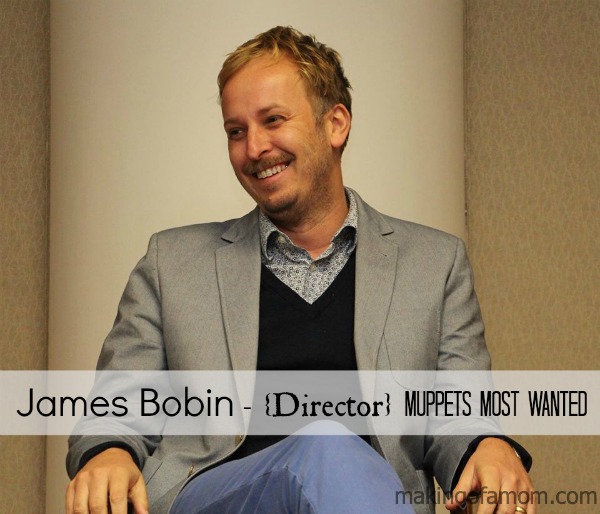
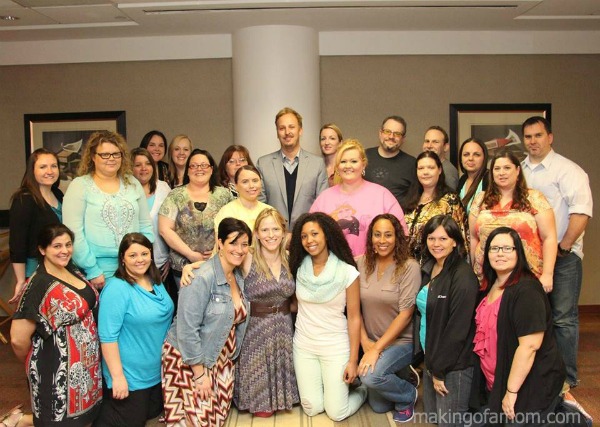
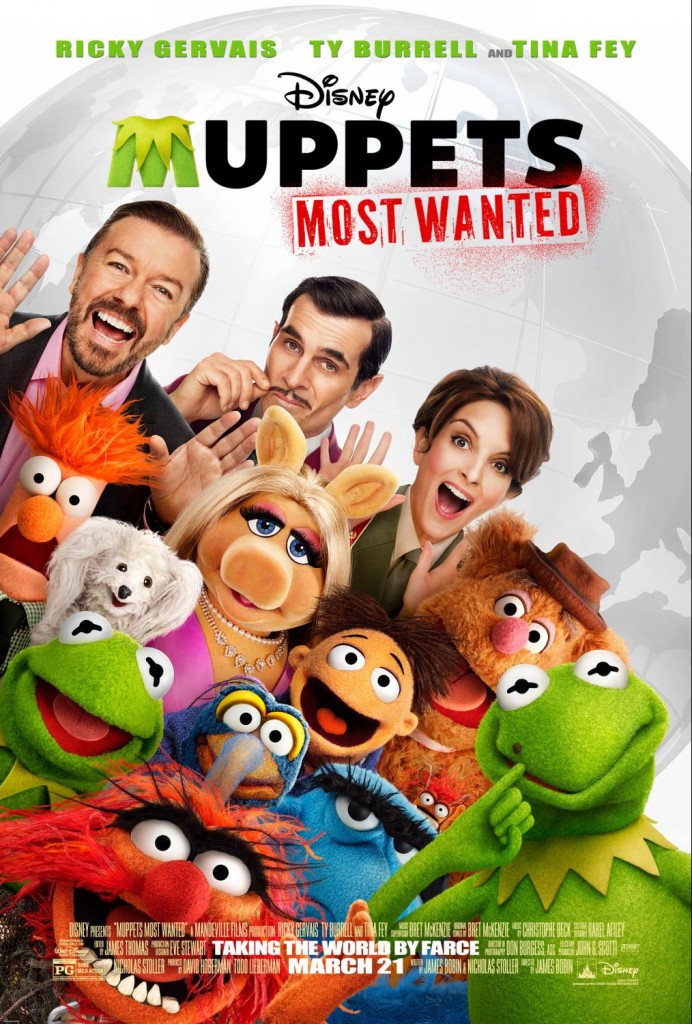

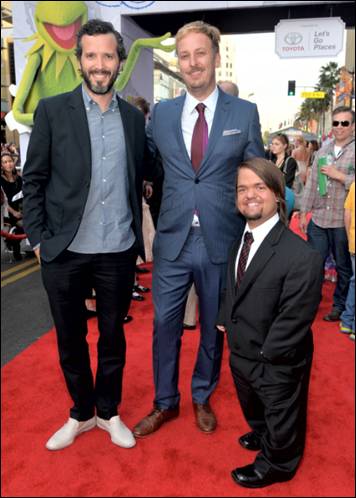
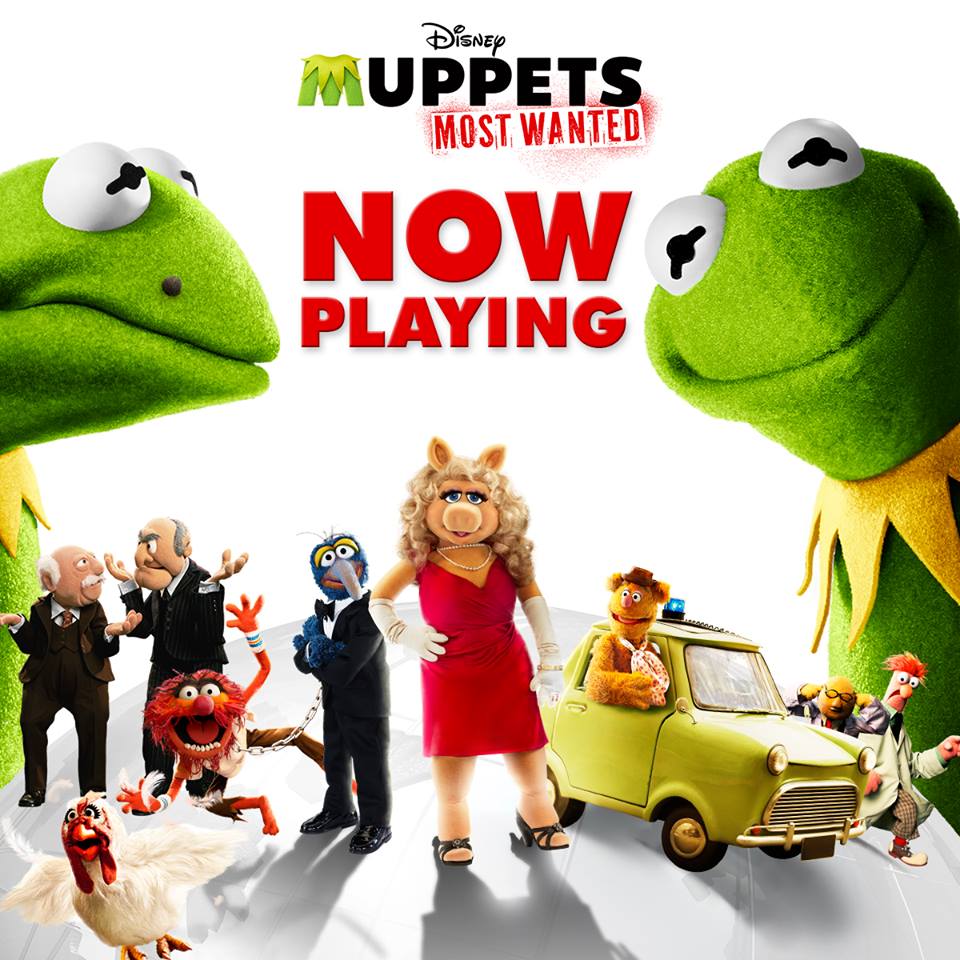

Freya Sturgeon says
I think that speaking to the director of “Muppets Most Wanted”must have been one of the best interviews you had. He’s not the “star”on camera, but he is the one who helps the stars keep their focus throughout the show. I find it is important to know the director’s interest in his movie. To hear the director’s background behind putting a show together, and to see his reactions about the film that he has put his heart and soul into, has always been quite interesting to me. The director’s thoughts always make me see a different angle of the movie that I don’t always consider. Because so, I will gain a new outlook on the movie.